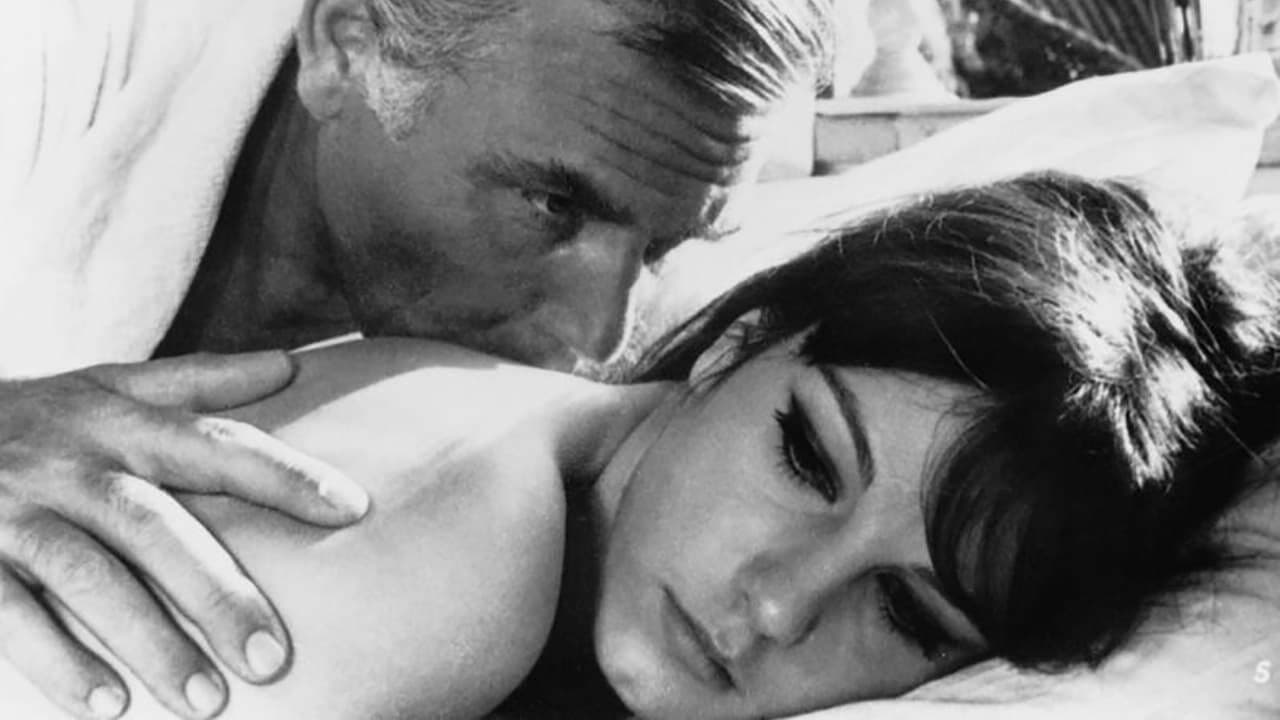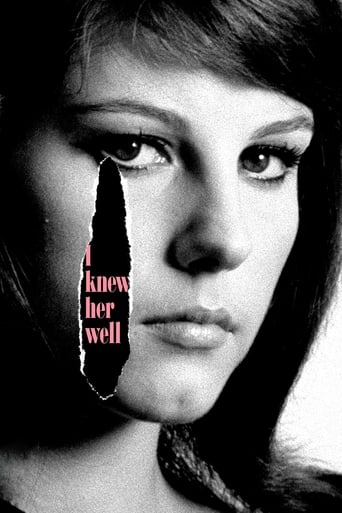

Not much happens in this film. Everything relies on the charm of actors, their presence fills the screen, it electrifies: Stefania Sandrelli (a sexy-angel, perhaps the most sensual angel-woman that the 7th art offered), Ugo Tognazzi, Enrico Maria Salerno and Nino Manfredi (all three have no need of words to make a big role in a film), and Jean-Claude Brialy, Mario Adorf, Franco Fabrizi and a very young Franco Nero in a small role, unique. 60's music, Sergio Endrigo, Mina, Ornella Vanoni, Peppino Di Capri, Gilbert Becaud, contribute greatly to achieving a distressing atmosphere, which will eventually lead the heroine(Stefania Sandrelli) to suicide. Sad but you can watch it again and again and again.
... View MoreA great capsule of life in Italy in the early 60s. There are shades of la Dolce Vita since every scene takes place in summer and features incredible clothing, but our point of view here is radically different: it is that of a vulnerable young woman instead of a successful jaded male intellectual like in the Fellini movie. The vita is not so dolce for the girl played by the innocent-looking Stefania Sandrelli (who was apparently only 19 when she starred in that film, but what maturity she displays as an actress already.) A peasant girl from the sticks, we meet her right away in Rome where she aspires to glamour, stardom, fame etc. But because she does not know anyone, and is both naive and not very bright to boot, she takes many wrong turns and indulges all the wrong people. This film is very entertaining, because we are in Rome in 1964, it feels and looks like a hot summer all along, and the dresses worn by Sandrelli are unbelievably glamorous. But it is a ferocious social satire, and it is tender neither to our silly heroine nor to the sharks who exploit her and many others. The black&white photography is gorgeous on the eyes. Nino Manfredi and Ugo Tognazzi do each a memorable turn among the victim/exploiters that populates this Roman shark tank. Sandrelli is so good (and so beautiful) that she manages to make her character attaching in spite of her flaws.
... View MoreCriterion Collection has released 'Io la conocevo bebe' (I knew her well) a half century after its first showing. Stefania Sandrelli carries the film admirably, with a star studded cameos of the 1960s, say Jena-Claude Brialy, Ugo Tognazzi, Joachim Fuchsberger and a young handsome Franco Nero. A poor peasant girl comes to Rome to make her fortune. She is pretty and likes to have fun. She is bait for men who use her, take her money and drop her. She pays her way with her body and her money. She works at odd jobs, but is kept by an madam of sorts in a high rent, high rise flat in Rome. Adriana surfs her own sweet life--her own dolce vita. Pietangeli the director skilfully uses the pope tunes of the day to anchor the mood and the state of Adriana's existential highs and lows. A writer played by Fuchsberger limns her character: she lives for the moment. And when she has a chance to make it, the film of her mocks her pretensions and rips her dreams through ridicule; she is mocks as someone of no education, a 20 something who goes from bed to bed and in the end aging will walk the pavement for her living. Humiliated she throws herself off her balcony as the credits roll up the screen. A morality play? Perhaps. A commentary on a youth that is not golden and knows no future but the fleeting moment of sense 'fame', if you can call it that.
... View MoreAnother of the many Italian movies about alienation in the post-war years, very well made, beautifully shot, often interesting - but not up there with L'AVVENTURA or LA DOLCE VITA. The problem is the main character, one of the horde of young, nouveau-American European youth of the 1960s, ignorant of the war or much else besides, who only enjoys dancing to moronic music, polishing her nails, and reading comic books. Of course, she wants to be an actress. She goes through as many hairstyles as boyfriends in the course of the film, and though among them there are some recognizable faces (Franco Nero is the shy young auto mechanic here; the following year he would be cold-blooded killer DJANGO), the hairstyles tend to be more memorable than the men.The problem with making a movie about a character as vapid as this young woman is that her story isn't compelling. Even though we find out later that she's really just a poor girl from the country from a hard-luck farm family, even though we cringe at the number of times she's exploited through the course of the film - there is one particularly cruel scene in which a young man, after sleeping with her, has her telephone the girl he really likes, just in case her mother answers - the life and death of a bubblegum-popping wannabe actress is not the stuff of great tragedy. She takes a leap just when self-awareness finally dawns: no one cares for her (except Nero's character, who she doesn't even notice), she's the butt of jokes, she really is just a beautiful idiot with no future once the looks fade. Of course, the real theme of the movie might be that thinking too much is a bad thing: in one telling sequence a jaded writer says as much to her, that her brainless, live-for-the-moment existence might be some kind of unconscious wisdom. But the life of the girl, who I suspect is a kind of symbol of the director's horror of modern Italy, grows a little tiresome before the end of the film.
... View More